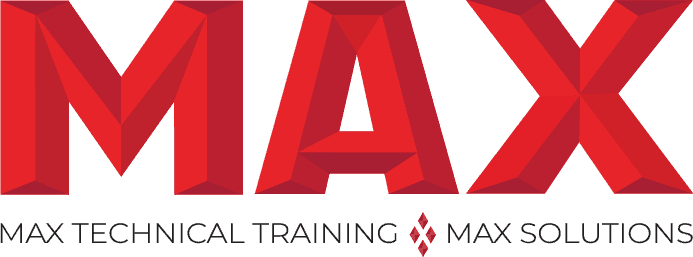04/15/2024
Share This Story, Choose Your Platform!

What is the Purpose of Iteration Goals?
Welcome to the world of Agile methodologies, where adaptability, collaboration, and continuous improvement reign supreme. At Max Technical Training, we know that understanding Agile practices is pivotal for modern teams aiming to excel in today’s dynamic business landscape. Agile teams harness the power of iteration goals to navigate complexity, drive value and consistently deliver high-quality products.
But what is the purpose of iteration goals? Let’s delve into the myriad reasons why Agile teams swear by them and discover their transformative impact on project success and team dynamics. Whether you’re new to Agile or looking to deepen your understanding, Max Technical Training is your go-to destination for mastering Agile practices. Join us on this enlightening journey and unlock the secrets to Agile success!
What are Iteration Goals?
Setting clear and specific goals is fundamental to any successful endeavor. Iteration goals, in particular, refer to the practice of breaking down overarching objectives into smaller, manageable tasks that can be achieved incrementally.
These smaller goals are set within defined timeframes, allowing for continuous evaluation and adjustment as needed. By focusing on iterative progress rather than a singular end result, individuals and teams can enhance their productivity and efficiency while fostering a culture of learning and improvement.
Types of Iteration Goals
Short-Term vs Long-Term Goals
When it comes to setting iteration goals, one crucial distinction to make is between short-term and long-term objectives. Short-term goals are typically focused on immediate results and quick wins that can be achieved in the near future. These goals provide a sense of accomplishment and motivation to keep moving forward.
On the other hand, long-term goals encompass broader, more strategic visions that require sustained effort and planning over an extended period. Balancing these two types of goals is essential for maintaining momentum while also working towards significant, overarching objectives.
Balancing Immediate Results with Strategic Vision
The key challenge in managing short-term and long-term iteration goals lies in striking a balance between achieving immediate results and staying aligned with the overarching strategic vision. While short-term goals offer tangible outcomes that can boost morale and drive progress, they should always be viewed through the lens of how they contribute to the larger purpose or mission of the project or organization.
By aligning short-term wins with long-term aspirations, teams can ensure that every small victory moves them closer to their ultimate goal. This balance allows for flexibility in responding to changing circumstances without losing sight of the bigger picture.
Setting Milestones for Progress Tracking
In order to effectively manage both short-term and long-term iteration goals, setting milestones becomes paramount. Milestones act as checkpoints along the journey towards larger objectives, helping teams track their progress, identify potential roadblocks early on, and make necessary adjustments to stay on course.
By breaking down overarching goals into smaller, achievable milestones, individuals and teams can maintain focus and motivation throughout the iterative process. These milestones serve as markers of success along the way, providing a sense of accomplishment while ensuring steady progress toward holistic success.
Process-Oriented vs Outcome-Oriented Goals
Another important distinction within iteration goal setting is between process-oriented and outcome-oriented objectives. Process-oriented goals emphasize the journey itself—the steps taken, strategies employed, and lessons learned along the way—rather than solely focusing on reaching a specific end result. This approach encourages continuous learning and improvement throughout each iteration cycle.
On the other hand, outcome-oriented goals are centered on achieving specific results or deliverables within a given timeframe. While these goals provide clear targets for success, they may overlook valuable insights gained from the iterative process itself.

Focusing on the Journey vs Destination
The dichotomy between focusing on the journey versus fixating solely on reaching a destination speaks to different mindsets when approaching iteration goal setting. Those who prioritize enjoying and learning from each step of the process tend to adopt a journey-focused mindset—valuing experiences gained along the way as much as achieving final outcomes. Alternatively, those who place greater emphasis on reaching predefined outcomes adopt a destination-focused mindset where success is measured primarily by end results achieved rather than by incremental progress made during iterations.
Importance of Both Types for Holistic Success
While there are merits to both process-oriented and outcome-oriented iteration goals, true holistic success often lies in embracing both perspectives simultaneously rather than favoring one over the other exclusively. Process-oriented goals foster innovation through experimentation while encouraging continuous refinement based on feedback received during each cycle. Outcome-oriented goals provide clear direction by defining measurable targets but must be complemented by an appreciation for iterative learning processes that lead to sustainable growth over time.
What Is the Purpose of Iteration Goals?
- Focus and Direction: Setting iteration goals provides teams with a clear direction and purpose. In the fast-paced environment of software development, it’s easy for teams to get sidetracked by various tasks and distractions. Iteration goals act as a beacon, guiding the team’s efforts toward achieving specific outcomes within a set timeframe. This clarity ensures that the team’s energy and resources are channeled efficiently towards tasks that contribute directly to the project’s success.
- Effective Prioritization: In any project, there are often numerous tasks and features to be addressed. Iteration goals help in prioritizing these tasks based on their importance and impact. By defining what needs to be accomplished in each iteration, teams can allocate their time and resources more effectively, ensuring that high-priority items are addressed first. This systematic approach to prioritization helps in delivering value to stakeholders in a timely manner.
- Alignment and Cohesion: When teams have a shared understanding of the iteration goals, alignment and cohesion among team members are fostered. Everyone knows what they are working towards and why it matters, which minimizes misunderstandings and promotes collaboration. This shared sense of purpose can significantly improve team dynamics and productivity.
- Regular Feedback Loops: Iteration goals facilitate the establishment of regular feedback loops with stakeholders. By delivering working features or prototypes at the end of each iteration, teams can gather valuable feedback that can be used to refine and improve the product. This iterative feedback-driven approach enables teams to make informed decisions and adapt to changing requirements or market conditions more effectively.
- Measurable Progress: Defining clear iteration goals allows teams to measure their progress objectively. By setting specific, measurable, achievable, relevant, and time-bound (SMART) goals, teams can track their performance and evaluate whether they are on track to meet the project’s objectives. This measurable approach to progress tracking enhances transparency and accountability within the team.
- Motivation and Engagement: Knowing what they are working towards can be highly motivating for team members. Clear and achievable iteration goals provide a sense of accomplishment when achieved, boosting team morale and engagement. This positive reinforcement can lead to higher levels of productivity and job satisfaction among team members.
- Risk Identification and Mitigation: By breaking down larger project goals into smaller, manageable iteration goals, teams can identify potential risks and challenges more effectively. If something doesn’t go as planned or if priorities shift, it’s easier to adapt and make necessary adjustments within the shorter iteration timeframe. This proactive approach to risk management helps in minimizing disruptions and ensuring project continuity.
- Promotion of Continuous Improvement: Iteration goals encourage a culture of continuous improvement within the team. After each iteration, teams have the opportunity to reflect on their performance, identify areas for improvement, and implement changes accordingly. This continuous feedback and improvement cycle can lead to enhanced processes, better collaboration, and, ultimately, superior project outcomes.
In summary, iteration goals serve as a cornerstone in project management and software development, providing teams with focus, direction, and alignment while promoting effective prioritization, regular feedback, measurable progress, motivation, risk management, and continuous improvement.

Learn More about “What Is the Purpose of Iteration Goals?” With Max Technical Training
In the ever-evolving landscape of project management and software development, iteration goals stand out as a powerful tool for fostering adaptability, alignment, and continuous improvement. Whether you’re striving for short-term wins or aiming for long-term strategic objectives, iteration goals offer a roadmap that guides teams toward success.
At Max Technical Training, we’re passionate about empowering individuals and teams with the knowledge and skills to excel in Agile methodologies. We’ve explored the nuances of iteration goals, from effective prioritization and alignment to the promotion of continuous improvement.
Are you ready to elevate your Agile journey and unlock the full potential of iteration goals? Don’t miss out on the opportunity to deepen your understanding and master Agile practices with us. Visit Max Technical Training today and embark on a transformative learning experience that will propel you toward Agile success. Take the next step in your Agile journey with us – your pathway to excellence awaits!
Read More Articles From MaxTrain Technical Training
Visualising Linear Mixed Effects Model Python Basics
Visualising Linear Mixed Effects Model Python Basics At Max Technical Training, we believe in empowering individuals with the skills they need to excel in today's competitive tech landscape. One crucial skill for data scientists and [...]
Python: How to Solve the Error: Subprocess-Exited-With-Error
Python: How to Solve the Error: Subprocess-Exited-With-Error In the intricate world of software development, encountering errors is par for the course. However, one error that often leaves developers scratching their heads is the error: subprocess-exited-with-error. [...]
Understanding Software Development Roles and Responsibilities
Understanding Software Development Roles and Responsibilities Welcome to Max Technical Training's guide to software development roles! In the ever-evolving world of technology, mastering software development skills opens doors to a variety of exciting careers. At [...]
Scrum: Who Determines How Work Is Performed During the Sprint?
Scrum: Who Determines How Work Is Performed During the Sprint? Welcome to Max Technical Training, the premier destination for professionals eager to excel in Scrum and Agile methodology. If you want to deepen your understanding [...]
What is the Purpose of Iteration Goals?
What is the Purpose of Iteration Goals? Welcome to the world of Agile methodologies, where adaptability, collaboration, and continuous improvement reign supreme. At Max Technical Training, we know that understanding Agile practices is pivotal for [...]
The Skills You Need for Google Security Jobs
The Skills You Need for Google Security Jobs In today's dynamic tech landscape, security skills stand as the cornerstone of digital protection against ever-evolving cyber threats. As cyber-attacks grow in sophistication, the demand for proficient [...]










